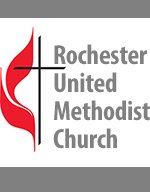Exodus 16:2-4, 9-15
The whole congregation of the Israelites complained against Moses and Aaron in the wilderness. The Israelites said to them, “If only we had died by the land of the LORD in the land of Egypt, when we sat by the fleshpots and ate our fill of bread; for you have brought us out into this wilderness to kill this whole assembly with hunger.”
Then the LORD said to Moses, “I am going to rain bread from heaven for you, and each day the people shall go out and gather enough for that day. In that way I will test them, whether they will follow my instruction or not.
…
Then Moses said to Aaron, “Say to the whole congregation of the Israelites, ‘Draw near to the LORD, for he has heard your complaining.’” And as Aaron spoke to the whole congregation of the Israelites, they looked toward the wilderness, and the glory of the LORD appeared in the cloud. The LORD spoke to Moses and said, “I have heard the complaining of the Israelites; say to them, At twilight you shall eat meat, and in the morning you shall have your fill of bread; then you shall know that I am the LORD your God.’”
In the evening quails came up and covered the camp; and in the morning there was a layer of dew around the camp. When the layer of dew lifted, there on the surface of the wilderness was a fine flaky substance, as fine as frost on the ground. When the Israelites saw it, they said to one another, “What is it??” For they did not know what it was. Moses said to them, “It is the bread that the LORD has given you to eat.”
Some Thoughts on Today’s Reading: Exodus 16: 2-4, 9-15
Spoiler alert! To illustrate a point or provide food for thought, I sometimes include popular culture and music in sermons and message. This time, I can’t get the song out of my head that goes, “Don’t it always seem to go, you don’t know what you’ve got ‘til it’s gone. They paved paradise and put down a parking lot.” Counting Crows did a recording not too long ago of this tune, “Big Yellow Taxi,” a Joannie Mitchell standard. The lyrics remind me of the very human habit of not appreciating things until they are gone.
I also think about the very human trait of not seeing the grace and the good when it is in the present.
For the Israelites, the view in the rear-view mirror seemed better then their experience of wandering in the wilderness with Moses. They had been freed from slavery but missed the food of the past they could count on and wondered if they were about to die from hunger – freedom or not. They wondered if they could trust God.
God intervenes, however, and all are fed with a new kind of bread that comes from heaven. The Israelites look at this fine, flaky substance and wonder what it is. Moses said to them, “It is the bread the Lord has given you to eat.” (Exodus 16: 15)
When we become new Christians and our life changes, it can be a struggle to live differently. The things that were a part of our lives, or at least some of them, need to go away. We enter into a new life of transformation that can seem like a wilderness. We can wander about wondering how in the world to love our neighbor, to be patient and kind. Being a follower of Christ, like following Moses in the wilderness was for the Israelites, can be hard.
The thing to remember is that God has something new for us, whether we are new to a faith life or decades into it. Christianity is a lifelong journey in which we can miss some of our old ways. We may be hungry to engage in a little gossip or pay back that does harm to ourselves as well as our neighbors. We might find it impossible to believe that God has a better life for us. We may be afraid of this new person we are becoming. We might ask, “How could my life journey be so incredibly different, joyful and full of purpose?”
In these moments, we can choose to complain or turn our eyes to the new bread God is offering. Do we see it? Are we up for the trip?
Grace and Peace,
Pastor Pam

Rev. Pam Brokaw pastors both the Rochester and Oakville United Methodist Churches.
She is a graduate of the Seattle University School of Theology and Ministry, where she earned her Masters in Divinity.
